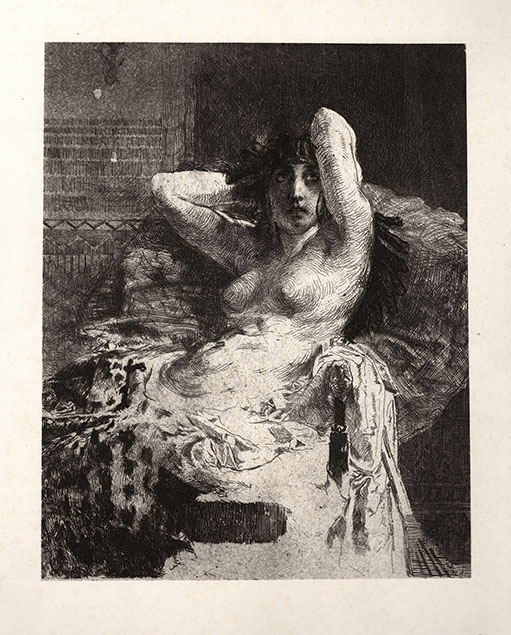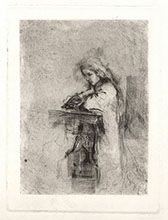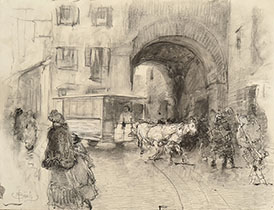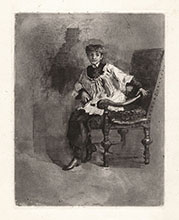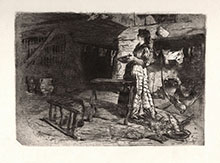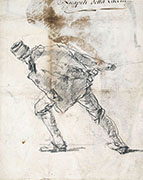(Monza 1840 - 1904)
Cleopatra
Etching, aquatint and drypoint; Mezzetti 92. A richly inked impression of the second state of two printed on soft wove paper, with full margins, in very good condition.
To the platemark 362 x 239 mm, to the image 204 x 163, the full sheet measuring 545 x 354.
PROVENANCE: Bruno Mantura (1936-2019)
The etching is related with two paintings, see Biscottini 1996 cat. Nos. 44 and 117.
Mosè Bianchi enrolled at the Accademia di Belle Arti at the Brera, Milan, in 1856. In 1859 he temporarily abandoned his studies to fight in the second Italian War of Independence, returning to Milan to study under Giuseppe Bertini. Among his fellow students was Tranquillo Cremona, whose involvement with the Scapigliati later had an impact on Bianchi’s work. In 1862 Bianchi exhibited his first large-scale independently painting. He continued to exhibit regularly and in 1866 he was awarded the Pensionato Oggioni, which enabled him to visit Venice, Paris and Rome. During this period Bianchi met the artists Mariano Fortuny y Marsal and Ernest Meissonier, and the dealer Goupil, who inspired him to produce a series of 18th-century genre scenes. Eighteenth-century influences, especially the work of Giovanni Battista Tiepolo, were also important for his many fresco cycles. Bianchi continued to attract attention with his views of Chioggia and Milan, these frequently providing the background for genre scenes. He was also a sensitive portraitist and made etchings. Notwithstanding his intense activity and continued public success, Bianchi spent his final years in poverty, assisted by his nephew, the painter Pompeo Mariani.
